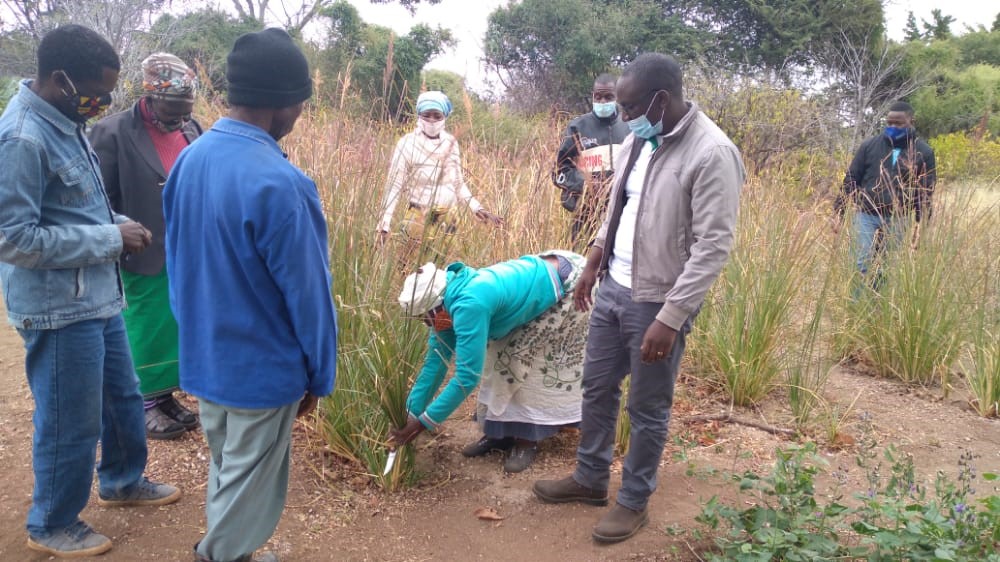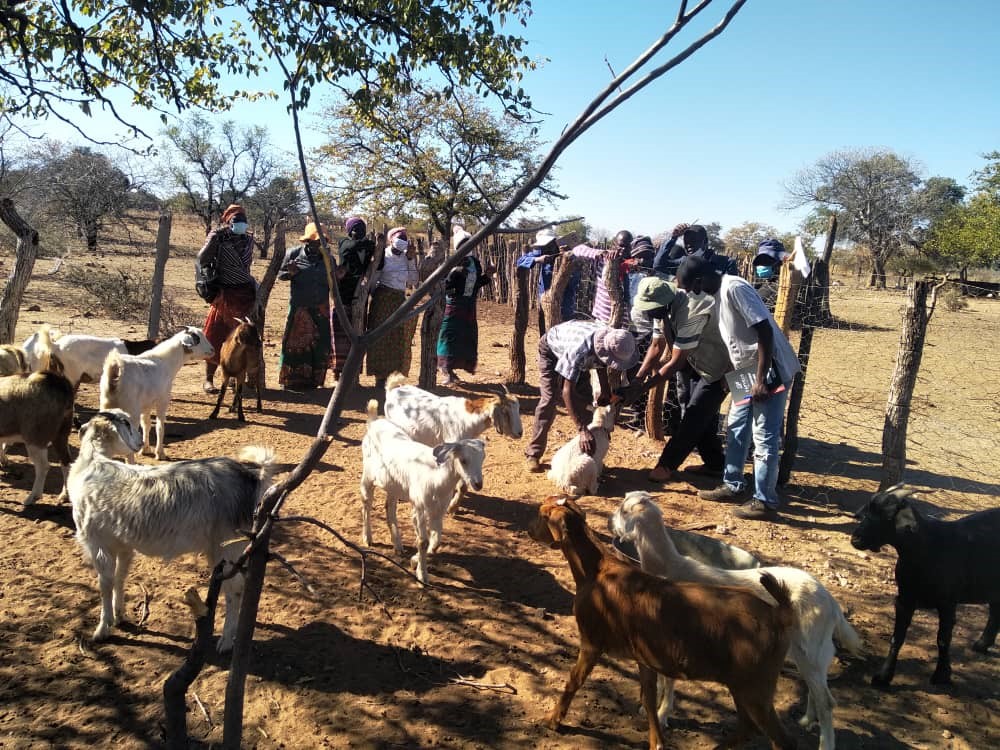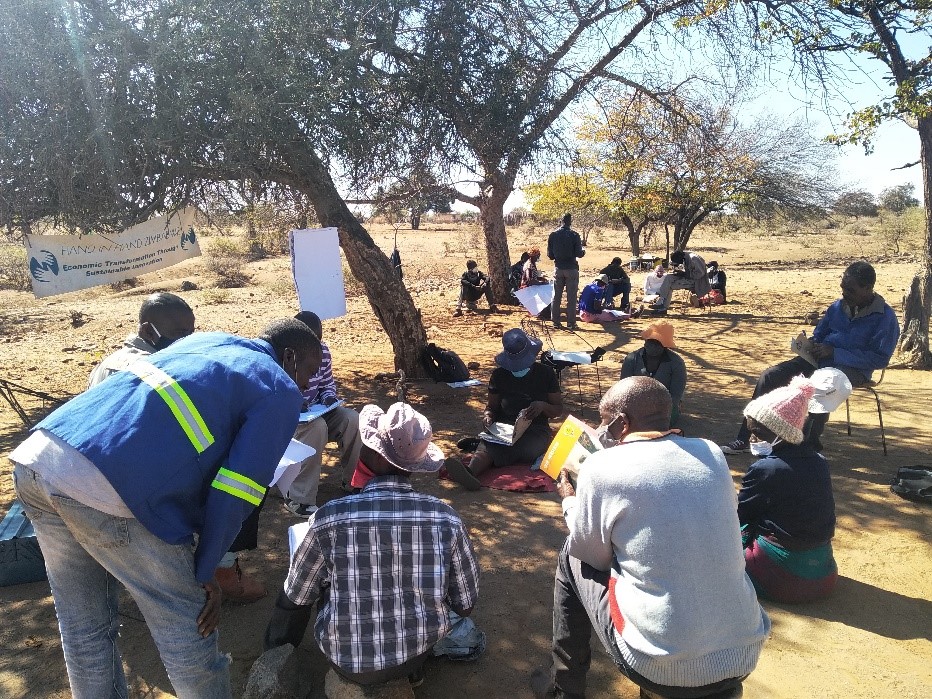Thusanang Self Help Group members (SHG) from ward 20 Gwanda District are enjoying the fruits of their hard work after venturing into integrated farming which includes fodder production, goat keeping and bee keeping.
The group which comprises of 9 women and 6 men was formed in 2018 through the support of Hand in Hand Zimbabwe (HIHZ).
After joining HIHZ the group went through robust trainings on business development, goat production, fodder production and environmental awareness.
Thusanang farmers partaking in one of the trainings facilitated by HIHZ
The group members decided to venture into integrated farming after noting the economic merits and ecological nexus associated with fodder production, goat keeping and bee keeping in the face of the fast changing climate.
The group took an intensive farming approach by establishing a 0.5-hectare garden, where they mounted their bee hives and started fodder production. Through the support from Hand in Hand Zimbabwe, they also installed a solar-powered borehole system in their garden.

Farmers at Thusanang Garden harvesting their fodder while members of the Forestry Commission watch
A cooperative relationship among their enterprises has been noted as bees collect pollen from fodder crops such as velvet and lablab beans while lablab beans feed nitrogen into the soil.
On the other end, their goats a have proven to with stand the harsh climatic conditions experienced across Gwanda District. The goats do not only feed on acacia scrubs characterising the southern part of district’s vegetation, but also rely on supplementary fodder feed which they grow in the garden
This has seen their enterprises growing steadily with the number of goats rising from the initial investment of fifteen (15) to forty-five (45) goats and from one (1) colonised hive to five (5) colonised hives.

Thusanang farmers weighing their goats in the presence of AGRITEX Officer
Their proximity to Manama Boarding School and Beit bridge District has become their comparative advantage as they continuously receive overwhelming orders.
On monthly basis, Thusanang sells an average of five (5) to ten (10) goats at an average price of USD $50 per goat enabling them to pocket USD $250-$500 monthly. They haven’t started selling their honey and only use it for household consumption.
The money generated has been reinvested back to the business through purchasing more goats at a lower price, while profit made has been shared among group members to cater for household necessities like food, clothing etc.
Part of their future plans include formally registering their business as a company in order to attract bigger and better paying markets.

